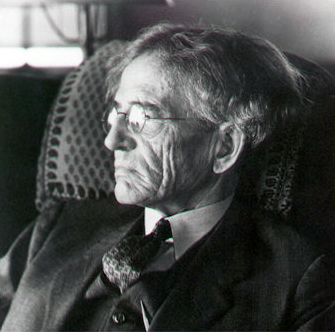“Liberty is absence of restraint. Freedom is participation in government.”
Zdroj: Legal foundations of capitalism. 1924, p. 111
John R. Commons byl americký ekonom, představitel tzv. staré institucionální školy. Po Thorsteinu Veblenovi je považován za jednoho z jejích hlavních zakladatelů. Usiloval o to, aby „institucionalismus“ nahradil v ekonomii mainstreamový „psychologismus“.
Zasadil se o inkorporaci práva do ekonomické vědy. Ve svém díle také poprvé pracuje s pojmy důležitými pro budoucí vývoj tohoto směru ekonomického myšlení, např. transakce nebo working rules, tzv. pravidla hry.
Wikipedia

“Liberty is absence of restraint. Freedom is participation in government.”
Zdroj: Legal foundations of capitalism. 1924, p. 111
Zdroj: "Institutional Economics," 1931, p. 648
“Legally, the term liberty means absence of duty, or rather the limit of duty.”
Zdroj: Legal foundations of capitalism. 1924, p. 53
pg. 41.
Races and Immigrants in America, 1907
Zdroj: "Institutional economics," 1936, p. 243
Zdroj: Legal foundations of capitalism. 1924, p. 221
Zdroj: "Institutional Economics," 1931, p. 648
Zdroj: Legal foundations of capitalism. 1924, p. vii
pgs. 115-16.
Races and Immigrants in America, 1907
Zdroj: Legal foundations of capitalism. 1924, p. 95
Zdroj: Legal foundations of capitalism. 1924, p. 376
Zdroj: Legal foundations of capitalism. 1924, p. 320
"Institutional Economics," 1931
Zdroj: Legal foundations of capitalism. 1924, p. 1; Lead paragraph first chapter on Mechanism, Scarcity, Working Rules
John R. Commons, "American shoemakers, 1648-1895: A sketch of industrial evolution." The Quarterly Journal of Economics (1909): 39-84.
pg. 131.
Races and Immigrants in America, 1907
“Liberty, as such, is only the negative of duty, the absence of restraint or compulsion.”
Zdroj: Legal foundations of capitalism. 1924, p. 118
Zdroj: "Institutional Economics," 1931, p. 654
Zdroj: Legal foundations of capitalism. 1924, p. 351-352
pg. 136.
Races and Immigrants in America, 1907
Zdroj: Legal foundations of capitalism. 1924, p. 25
Zdroj: Legal foundations of capitalism. 1924, p. 99
Zdroj: "Institutional Economics," 1931, p. 652
Zdroj: "Institutional economics," 1936, p. 242